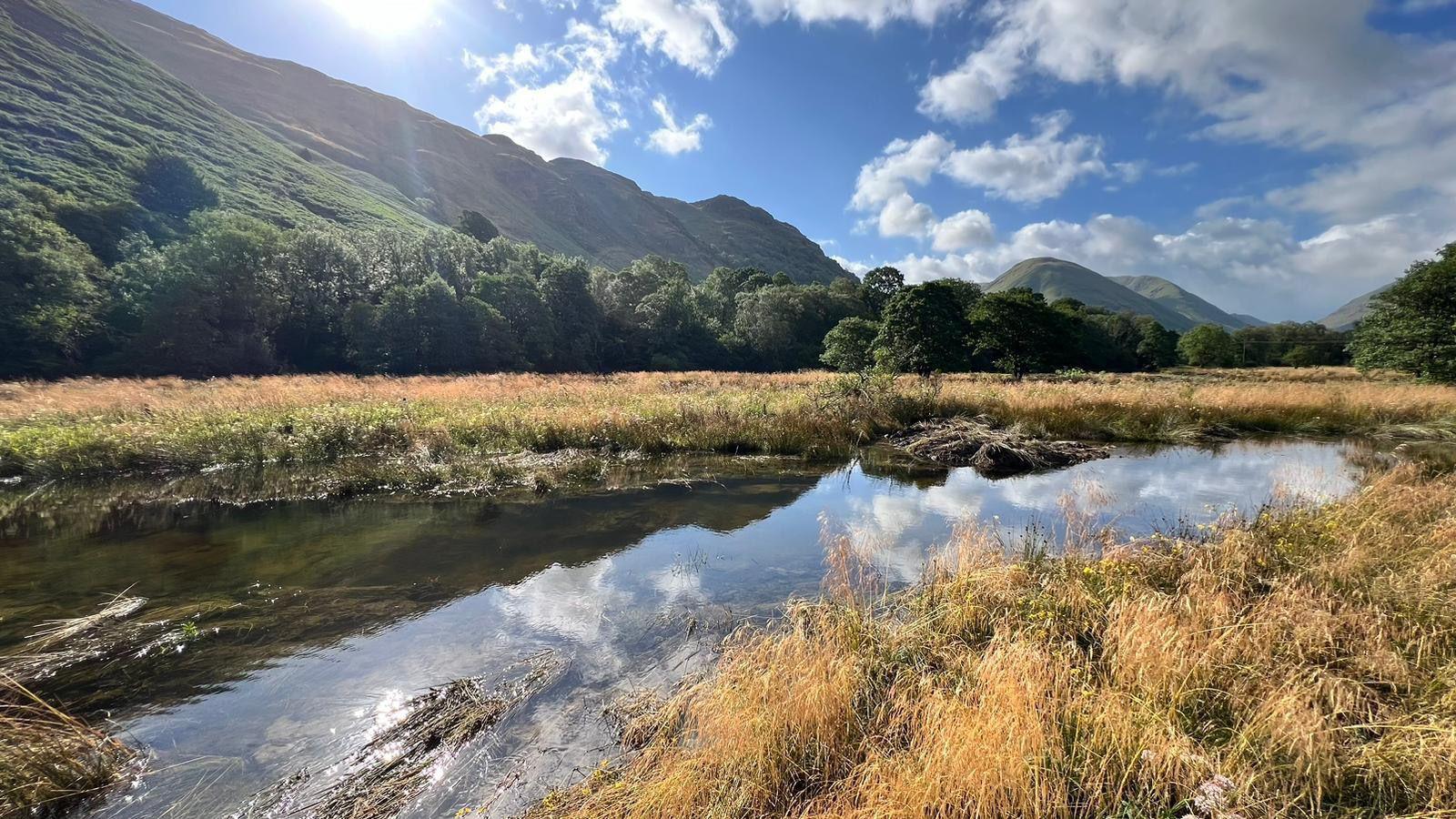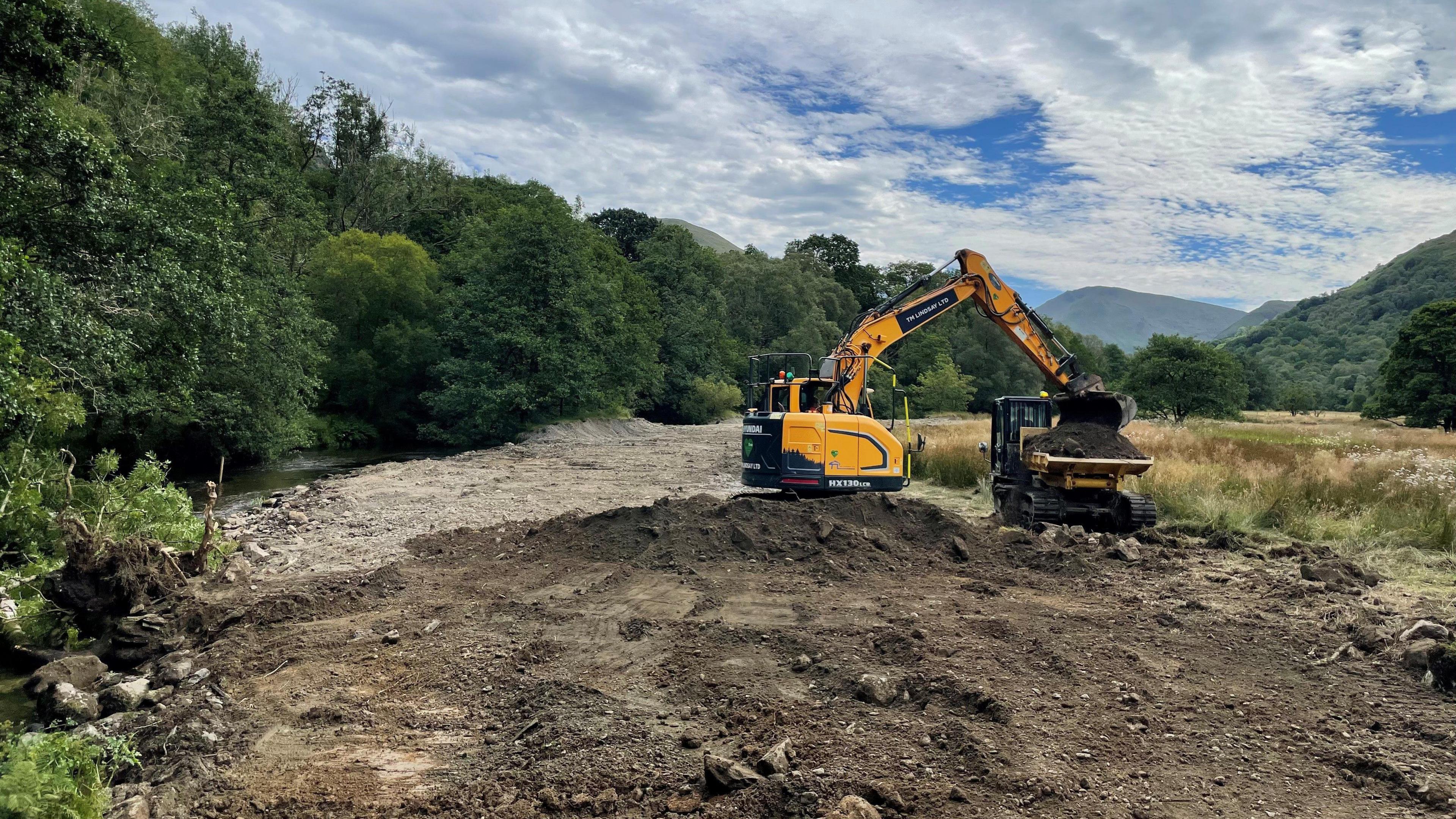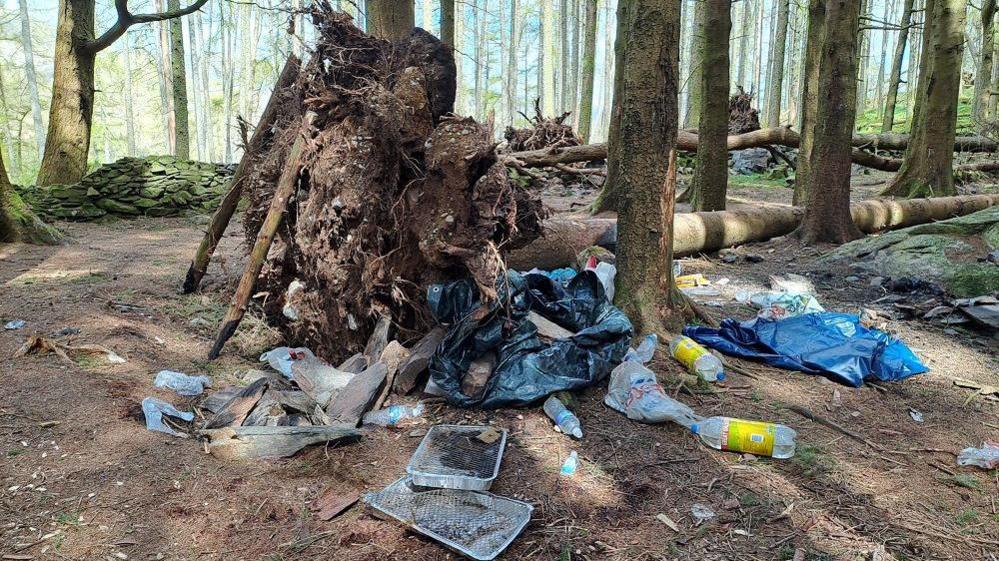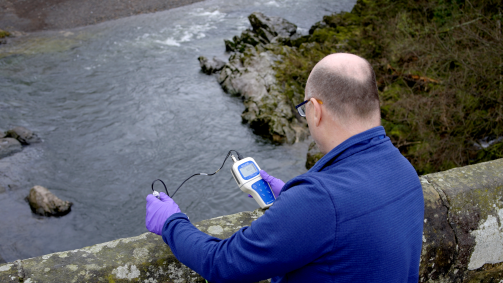River reconnected to flood-plain to boost habitats

Goldrill Beck has been reconnected to its flood-plain in the Lake District
- Published
Work to reconnect a river with its flood-plain, in order to improve wildlife habitats, has been completed.
The improvements, which took place on a 1km (0.6 mile) stretch of Goldrill Beck, in Ullswater, will create 11 hectares (27.2 acres) of wetland in the area.
The changes were made by incorporating natural features within the river and flood-plain, including lowering artificial embankments, blocking ditches and creating ponds.
Rebecca Powell, from the National Trust, said the project would improve the "long-term resilience of Ullswater's rivers, wildlife and communities".
"Climate change is the single biggest threat to the places we care for in the Lake District," she said.
"Our work to restore and improve rivers is one of the ways we can adapt to the impacts of climate change, through both slowing the flow of rivers, and creating carbon storage in flood-plain wetlands, which are a hugely important carbon sink."
She said the team had made "minimal interventions" to the environment, allowing "the river to do the rest of the work".

Artificial embankments were lowered and pools created as part of the work
Pools, dead wood and riffles (shallow areas where water runs quickly) have all been added to the river to help provide a variety of habitats for animals and plants.
Creating the flood-plain should also improve flood resilience, by slowing the flow of sediment and water.
The work was carried out by contractor Tom Lindsay, and was funded by the Environment Agency through the Cumbria River Restoration Strategy, external.
The project is part of the National Trust Riverlands Programme whose purpose is the restoration of the nation's rivers.
Follow BBC Cumbria on X (formerly Twitter), external, Facebook, external and Instagram, external. Send your story ideas to northeastandcumbria@bbc.co.uk.
Related topics
More stories from BBC North East and Cumbria
- Published16 August 2024

- Published17 August 2024
